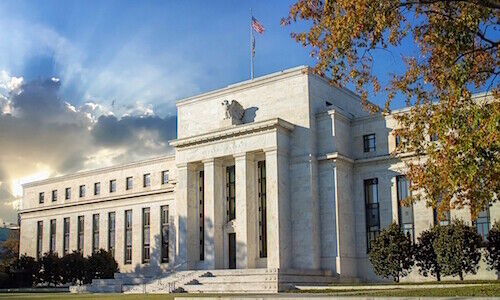Wealth Managers in Risk-On Mode After Jackson Hole Speech
The US Federal Reserve is signaling that it will now protect economic expansion. In turn, wealth managers are now shifting to a risk-on mode.
Last week, the US Federal Reserve signaled that there would be a policy pivot towards defending economic expansion. In a speech at Jackson Hole, Wyoming, Fed chair Jerome Powell said that he was confident that «inflation is on a sustainable path back to 2 percent» and that «further cooling in labor market conditions» was not welcome.
As a result, wealth managers are shifting their house views and suggesting investors to take more risk.
More Upside in the US
According to UBS Global Wealth Management, there is «room for US equities to rise further in a constructive environment driven by Fed rate cuts», forecasting the S&P 500 to reach 5,900 by year-end and 6,200 by June 2025.
«While the pace of easing remains to be seen, we note that Fed rate cuts in non-recessionary periods have historically been favorable for equity markets. Historically, the S&P gained 17 percent on average in the 12 months following the first Fed rate cut of a cycle,» the bank said in a note, adding that it believes that «the AI growth story remains intact».
Asia Complicated by Tariffs
Emerging markets in Asia have historically reacted positively to US rate cuts, especially if not associated with a recession. But in the upcoming cycle, the situation is further complicated by China and US tariff policy.
«This favors markets with strong domestic growth momentum like India and markets with secular industry growth like Taiwan and Korea (along with Japan),» said a note by Citi Global Wealth Investments. «Hong Kong is a special case in Asia where US policy easing will help unwind a historically high rate premium vs China.»
Stabilization in Fixed Income
Within fixed income, Standard Chartered believes that there will be stabilization at current levels even if the Fed were to signal support for the 100 basis points of cuts currently priced in by money markets by year-end, though the bank is forecasting 75 basis points.
«Hence, we see a low probability for the 10-year yield falling significantly below 3.8 percent in the near term, unless US data deteriorates sharply in the coming weeks,» Standard Chartered said in a note.



























